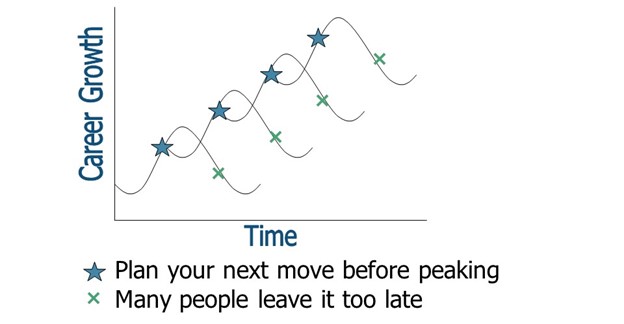And suddenly you just know it is time to start something new and trust the magic of beginnings.
Source Unknown
Did you know that, on average, approximately 18-20% of the working population is actively disengaged at work? And this number is relatively stable across gender, age, industry, tenure in a role, and seniority. Disengaged workers are unhappy and unmotivated, making as little effort as possible, likely stressed which may be spilling over to other life roles, and just generally unpleasant to be around.
There can be several reasons why individuals are disengaged at work, including poor fit (i.e., the role or the employer is not a good match), stressful work environment, ineffective manager(s), and lack of opportunity to grow and develop. This last piece – opportunity to grow and develop – is an important part of effective career management but can often be misunderstood.
Although employers have a critical role to play in ensuring opportunities for growth and development, this is a shared responsibility. Workers cannot passively wait for their supervisor or manager to “tap them on the shoulder” with offers of interesting new projects, access to professional development funds, or opportunities to advance. Instead, workers must drive their own careers, actively seeking out opportunities and discussing goals and aspirations and… they must do this before they peak.
The figure below is a great visual, demonstrating proactive vs. reactive career management. The ideal time to be seeking your next opportunity is when you are in a position of strength, just as you are about to peak. When your employer sees you as valuable talent, as someone worth investing in, growing, and ensuring you have ample opportunity to be actively engaged. Unfortunately, too many workers do not start thinking of their next job until long after they’ve peaked. When they are no longer truly valuable, actively disengaged and, some might say, not really employable.

Figure 1: Used with permission from Life Strategies Ltd.
The answer is not always easy, as it can be a very personal experience. The key is to take stock about how you feel about your current role, asking: